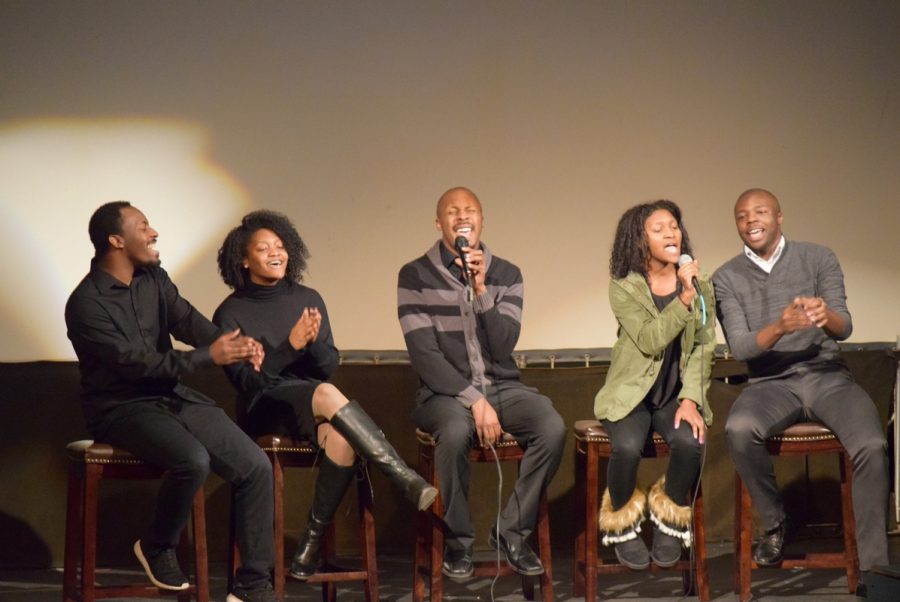Where are we in Black History?
The Black History Celebration on February 24th was a gathering of the community to honor events and figures in Black History in pictures, costume, and song.
March 31, 2017
From the start of the Civil Rights Movement in 1954, to 2017, an era of technology, a lot has changed when it comes to the lifestyle of African Americans. 63 years ago, many black families lived in the southern part of the racially segregated country. Even those who lived in other regions of the US had to face similar types of prejudice and social rejection. Fast forward to today and you see interracial schools, African American members in office and Congress, and equal rights. But despite 63 years and the determination of many, some have come to ask if African Americans are really equal. They’ve come to ask: Where are we in Black History?
Black History Month is the time when many African Americans come together to appreciate their past and acknowledge how far they have come because of it. For some it means more than others, but overall it is a silent thanks to the Black heroes of our past.
“I think that it’s important for all of our students to know … the history of where our people come from, where we’re going and just the obstacles and hurdles that we’ve had to overcome for hundreds of years. I think that it’s good that we celebrate it,” said Mr. Boyd, one of Central’s ISS teachers and a football and baseball coach.
In today’s society, you are less likely to be called verbally harassed by a random stranger on the street, but that doesn’t mean that the prejudice is gone, and the hate any less alive.
“I have seen enough of those [situations where people are being discriminated against] to understand that those are hard discrepancies in how people are treated based on race,” said Dr. Brooks.
As the principal, Dr. Brooks has seen many things, and feels like Black History, ironically enough, is not being appreciated by Central High’s predominantly black students.
“Especially the end of the millennial generation, there is a sense of entitlement and they don’t look at what has happened in the past and how it contributes to their future,” Dr. Brooks said.
The Civil Rights Movement was a mark in history for the African American race, and greatly impacted the generations after. Joining the life-changing movement is the current anti-police brutality movement, Black Lives Matter.
“[Police brutality is] a really important topic right now because of the things that are going on in our society. All the things that are happening in our communities, I think that it has to be made aware of so that we can come up with a solution to what’s going on,” said Mr. Boyd.
“I think [Black Lives Matter is] about fairness and equity. I think it’s about making sure that the process is handled with fidelity when talking about how law enforcement interacts with people. The relationship between law enforcement and people has blown out of proportion and it’s always been crazy, … now it’s coming to light and we’re really trying to address it,” he explained.
This 21st Century movement is by no means the end of the race to equality however. African-American youth still have a far way to go, and the future of the race is still unclear.
“I don’t think it’s intentional, but there’s a lack of focus in the African American community on what is important. I think we have a long way to go,” said Dr. Brooks.
